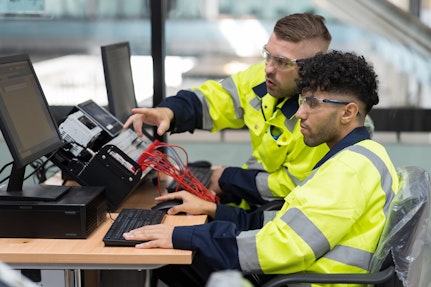Flexible work and the post pandemic recovery
Putting flexibility at the heart of good work

The pandemic has unleashed a new era of flexible working. But this does not necessarily mean good quality, part time and flexible work across all sectors.
There is a risk that extreme working hours and blurred boundaries become more common, and that some jobs become less secure. At the same time, many women working in low paid, part time roles in retail and hospitality have been hit particularly hard, and are now in more precarious employment, on furlough or have already lost their jobs.
The present moment provides us with a unique opportunity to engage with employers currently grappling with shifting realities of the labour market. Timewise joined us to examine how local authorities can make interventions to embed flexible work in their local economies and good work agendas.
What’s the problem?
Risk of a two-tier workplace
The risk is a split in the workforce between ‘flex haves’ and ‘flex have nots’. The ‘flex haves’ are fortunate, working in roles which are straightforward to make flexible, or in organisations with the time and money to invest in change programmes. The ‘flex have nots’ will struggle in roles which are either being flexed to the extreme or which can't easily be adapted to home working, especially within sectors such as social care and healthcare that are overwhelmed and lack the capacity to begin implementing change following the pandemic.
Location flexibility vs. Time flexibility
With massive increases in the number of people working from home, ‘flexible work’ has become almost synonymous with ‘remote work’. More attention needs to be given to the fact that not all roles can be carried out from home, particularly those frontline roles in retail, construction, social care and the NHS. It is important to remember that time flexibility – such as part-time, staggered start and finish times, and core hours – is equally important and better suited to some roles and industries.
What can be done to avoid a two-tier workplace and flexible inequality?
- Deliver Two-Way Flexibility to address the lack of equal access to quality flexible working, which tends to predominantly affect people in low-paid, frontline, and shift-based roles.
- Make good jobs flexible. Opening up more flexibility in those roles that are well paid and offer otherwise fair conditions of employment with good opportunities for progression, so that people who need to flex are no longer compelled to choose between flexibility and pay and progression opportunities.
- Ensure that flexible jobs are good quality so that the flexibility on offer is two-way, to the benefit of workers as well as employers, providing employees with a meaningful level of autonomy and control over how they work.
How to embed fair flexible work into post pandemic recovery:
- Build on increased multi-agency collaboration. Local and combined authorities are in a strong position to encourage more employers to commit to adopting fair flexible working practices for those in frontline roles, rather than just office workers.
- Proactively consider flexibility for every new role, expressing this openly and positively on the job advert so that flexible hiring becomes the norm and employers are able to access the widest and most diverse pool of skills and talent.
- Embed in good employment approaches including charters and stakeholder engagement with business and employers. Greater Manchester Combined Authority have integrated Flexible Work as one of the characteristics of good employment in their Good Employment Charter.
Greater Manchester Combined Authority: Fair Flexible Work and the Good Employment Charter
In 2019, Greater Manchester Combined Authority agreed to the establishment of a Greater Manchester Good Employment Charter. The agreed Charter framework set out seven headline characteristics of good employment - including Flexible Work. Charter Supporters must commit to giving employees the opportunity to work flexibly wherever possible and Charter Members are expected to provide evidence of enabling a more flexible workforce to access a broad diversity of skills and talent.
Resource Hub
Browse our resource library to find what inclusive growth looks like in practice and how it is benefitting people and places across the UK










